Featured
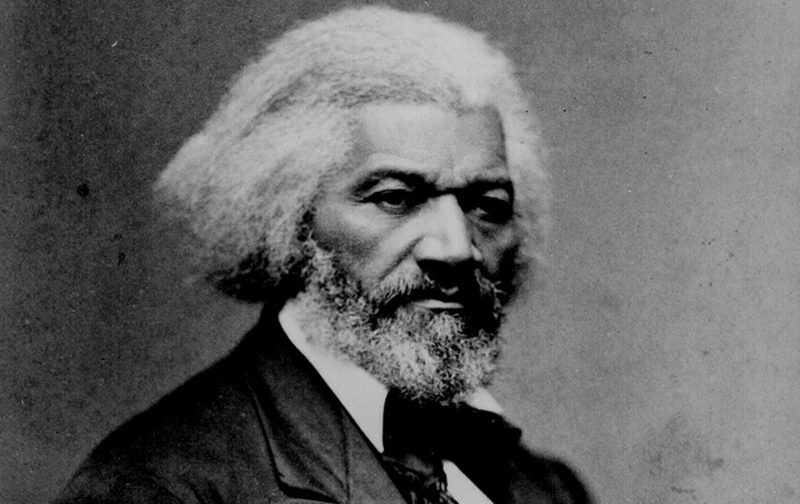 Frederick Douglass’s 4th of July speech still burns with his spirit. By Javonte Anderson / USA Today
Frederick Douglass’s 4th of July speech still burns with his spirit. By Javonte Anderson / USA Today
On the heels of America’s 76th birthday, Frederick Douglass, a renowned orator, abolitionist and former slave, criticized the United States for celebrating its political freedom while millions of Black Americans were still enslaved. Douglass delivered his “What to the Slave Is the Fourth of July?” speech July 5, 1852, at the historic Corinthian Hall in Rochester, New York. The Rochester Ladies’ Anti-Slavery Society had invited Douglass to speak on the Fourth of July, but he declined because, as he explained to an audience of roughly 600 free, white people: “The rich inheritance of justice, liberty, prosperity and independence, bequeathed by your fathers, is shared by you, not by me. The sunlight that brought life and healing to you, has brought stripes and death to me. This Fourth [of] July is yours, not mine.” Read more
Related: What to the Slave Is the Fourth of July?’ by Frederick Douglass / The Nation
Related: How are we supposed to celebrate July 4 after Juneteenth? By D. Watkins / Salon
Related: The Declaration of Independence’s debt to Black America. By Woody Holton / Wash Post
Political / Social
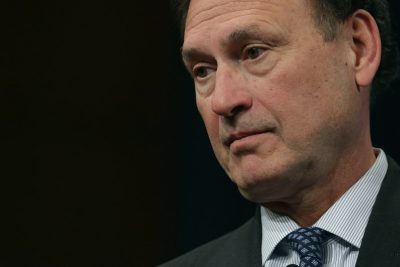 Samuel Alito and His Fellow Conservative Supreme Court Justices Deal a Damaging Blow to Voting Rights. By Matt Ford / The New Republic
Samuel Alito and His Fellow Conservative Supreme Court Justices Deal a Damaging Blow to Voting Rights. By Matt Ford / The New Republic
The Supreme Court narrowed Americans’ ability to fight racial discrimination in election laws on Thursday, upholding two Arizona measures that had been challenged under a key provision in the Voting Rights Act of 1965. In a 6–3 ruling along the traditional lines, the court’s conservative majority gave states more flexibility to craft their voting laws and practices without violating the landmark statute. The result is good news for Republican state lawmakers who are scrambling to erect new barriers to voting and bad news for voters in those states who now have fewer tools to overcome them. Read more
Related: What’s Next For Voting Rights After Supreme Court Decision. By Domenico Montanaro / NPR
Related: Voting Rights Poll: People More Concerned With Access Vs. Fraud. By Domenico Monanaro / NPR
Related: Altering Our Vision of Voting. By Charles M. Blow / NYT
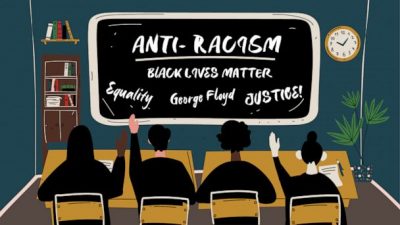 Schools Must Teach About Racism. By Glenn Sacks / The Progressive
Schools Must Teach About Racism. By Glenn Sacks / The Progressive
If we ignore the United States’ racist legacy, the only explanation for this tragic phenomenon is to blame Black people for their own oppression.
Good teachers know that if something is relevant to their students’ experiences, it needs to be a part of their education. Yet teaching about racism in schools is now drawing feverish condemnation from conservatives, particularly over “critical race theory.” Teachers like myself are being accused of “indoctrinating” students, or of introducing extraneous racial issues that don’t belong in school. But, in fact, they do. Beyond caring about historical accuracy, which is vital, teachers have another good reason to include lessons on racial injustice: Black and brown students dominate most major cities’ public school systems. For example, in New York City public schools, two-thirds of students are Black or Latinx. In Chicago, 84% are, in Los Angeles 83%, in Detroit 96%, in Washington, D.C., 86%. Read more
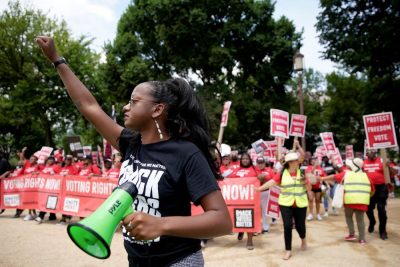 Rally calls on defending voter rights and DC statehood. By Donna M. Owens / NBC News
Rally calls on defending voter rights and DC statehood. By Donna M. Owens / NBC News
The “we the people” at last week’s rally on Washington, D.C., statehood and voting rights comprised a coalition of races, genders, generations and geography. From students to clergy to members of Congress, about 2,500 people descended upon the nation’s capital to defend what the late congressman and civil rights leader John Lewis described as “the precious, almost sacred” right to vote. Folded into that sentiment was the demand that the residents of Washington, D.C., must also be recognized as full citizens through statehood. Read more
Related: The partisan divide over statehood for Washington, D.C. By CBS News
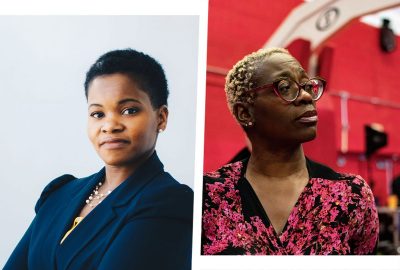 The empire strikes back: Mainstream Dems try to crush the left in Buffalo and Cleveland. By Norman Solomon / Salon
The empire strikes back: Mainstream Dems try to crush the left in Buffalo and Cleveland. By Norman Solomon / Salon
For Buffalo’s entrenched leaders, a shocking crisis arrived out of the blue on June 22 when socialist India Walton won the Democratic primary for mayor, handily defeating a 15-year incumbent Byron Brown, who has a deplorable track record. “I am a coalition builder,” Walton said in her victory speech that night. But for the city’s power brokers, she was a sudden disaster. Two hundred miles away, in northeast Ohio, the No. 3 Democrat in the House, Rep. Jim Clyburn of South Carolina, went out of his way to make clear that he doesn’t want the frontrunner in the race, progressive stalwart Nina Turner, to become a colleague in Congress. Though nominally endorsing Turner’s main opponent, Shontel Brown, the clear underlying message was: Stop Turner. Read more
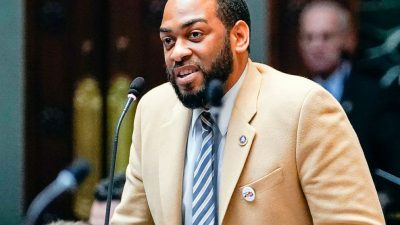 Progressive Charles Booker Is Running For Senate Against Rand Paul In Kentucky. By Travis Waldron / HuffPost
Progressive Charles Booker Is Running For Senate Against Rand Paul In Kentucky. By Travis Waldron / HuffPost
HuffPost can confirm that Booker, whose narrow primary loss last year in the Democratic primary to face Senate Minority Leader Mitch McConnell (R) nevertheless made him a rising star in Kentucky politics, will formally launch his campaign to challenge Sen. Rand Paul, the state’s other Republican senator, in 2022. Booker is among a group of Black Democratic Senate candidates that is only likely to grow in the coming months, as a national campaign apparatus that once viewed such candidates as too risky to run in statewide contests becomes more open and diverse, especially after Sen. Raphael Warnock’s win in Georgia earlier this year. Read more
 Clerkships remain largely white. Can law students of color shake up the status quo? By Erik Ortiz / NBC News
Clerkships remain largely white. Can law students of color shake up the status quo? By Erik Ortiz / NBC News
Two summers ago, as a third-year law student at Georgetown University, James Gilmore applied for dozens of law clerkships with federal judges — temporary positions that are highly coveted for the experience and connections they afford. He received one reply. Gilmore, who is Black, realized the difficulty to pierce through barriers was common among other law students and graduates of color. The most recent data analyzed this year reflects that: According to the National Association for Law Placement, which tracks career development and salaries in the industry, of the more than 3,100 graduates from the class of 2019 who said they earned a judicial clerkship, 77 percent were white and 23 percent were graduates of color. Read more
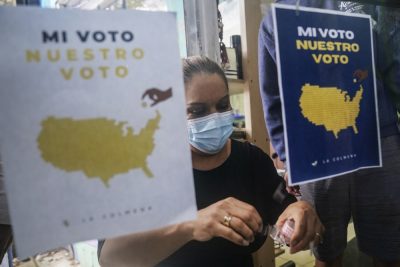 Latinos who supported Trump were more likely to lack a college education. By Suzanne Gamboa / NBC News
Latinos who supported Trump were more likely to lack a college education. By Suzanne Gamboa / NBC News
Donald Trump had a higher share of support in the 2020 election among Latino voters without a ollege degree than those with one, Pew Research Center reported Wednesday. Although President Joe Biden won a majority of votes from Hispanics, 59 percent in the 2020 race to Trump’s 38 percent, there was a significant difference in preference based on education, Pew reported. Read more
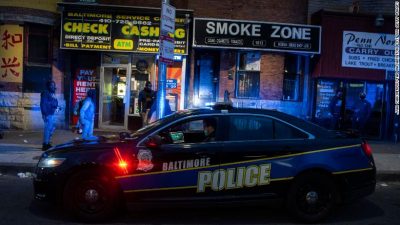 Baltimore is ‘ahead of the game’ with police reform, but there’s still much work to be done. By Emma Tucker / CNN
Baltimore is ‘ahead of the game’ with police reform, but there’s still much work to be done. By Emma Tucker / CNN
In the wake of Gray’s death, then-Mayor Stephanie Rawlings-Blake asked the Department of Justice to order a civil rights investigation into the city’s police department. The findings revealed a “pattern-or-practice of constitutional violations,” including excessive force and racially biased arrests. The probe ultimately led to the implementation of a federal consent decree in 2017 mandating systemic reform. Baltimore has since undergone a “total makeover” of its police department after rewriting new policies, according to Baltimore Police Commissioner Michael Harrison, who also serves as the president of the board for the Police Executive Research Forum (PERF), a national police research and policy organization that advises police leaders on best practices. Read more
 NAACP says end to police violence overdue after Arkansas teen killed by deputy. By Mills Hayes / KATV
NAACP says end to police violence overdue after Arkansas teen killed by deputy. By Mills Hayes / KATV
No justice, no peace. That’s the phrase family and friends of 17-year-old Hunter Brittain shouted at the Lonoke County sheriff’s office after a deputy fatally shot the boy this week. It’s a phrase all too familiar with people of color who took to the streets after the death of multiple unarmed black men and women who were killed by police. After the death of Brittain, leaders in the Black community say change is more than needed. Read more
 After Contentious Debate, UNC Grants Tenure To Nikole Hannah-Jones. By David Folkenflik / NPR
After Contentious Debate, UNC Grants Tenure To Nikole Hannah-Jones. By David Folkenflik / NPR
Trustees for the University of North Carolina at Chapel Hill voted Wednesday afternoon at a closed session to give tenure to star New York Times writer Nikole Hannah-Jones several months after refusing to consider her proposed tenure. The case inspired a bruising debate over race, journalism and academic freedom. It led both to national headlines and anger and distress among many Black faculty members and students at UNC. Some professors there have publicly said they were reconsidering their willingness to remain at the university over the journalist’s treatment. Read more
 Native American women face an epidemic of violence. A legal loophole prevents prosecutions. By Graham Lee Brewer / NBC News
Native American women face an epidemic of violence. A legal loophole prevents prosecutions. By Graham Lee Brewer / NBC News
For nearly half a century, tribal nations have lacked the authority to prosecute people who are not members of a tribe — even though, according to the Department of Justice, those non-Native Americans are responsible for most of the violent crimes in Indian Country. It’s a festering legal problem that experts say affects all Native Americans but has been particularly catastrophic for victims of domestic and sexual violence, contributing to the epidemic of missing and murdered Indigenous women in the United States. Now, on the heels of a Supreme Court decision in Cooley’s case that affirmed tribes’ law enforcement authority, and with the reauthorization of the Violence Against Women Act currently before Congress, there is growing momentum to fix the legal loophole that non-Native American criminals have exploited for decades. Read more
 A federal ban on evictions is lifting this month. It’s a looming disaster for women of color. By Anne Branigin / The Lily
A federal ban on evictions is lifting this month. It’s a looming disaster for women of color. By Anne Branigin / The Lily
A new analysis from the National Women’s Law Center sheds light on what women of color like Sumlin, who is Black, have faced throughout the pandemic — and what they might encounter once nationwide eviction bans lift. The report, released Tuesday, finds that women of color would be hard hit by eviction protections ending. NWLC researchers found that Asian, Latina and Black women were more likely to be behind on rent and mortgage payments than their White counterparts. While there have been some encouraging signs of the economy rallying in recent months, the data also highlights current disparities in that recovery. Women of color were more likely than White women to have lost household income between April and May, according to the report, and were more likely to say they expected to lose income in the next four weeks. Read more
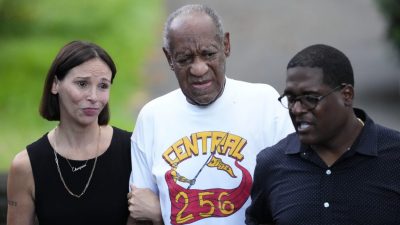 Bill Cosby’s crimes illuminate the fault lines between generations of Black women. By Lonnae O’Neal / The Undefeated
Bill Cosby’s crimes illuminate the fault lines between generations of Black women. By Lonnae O’Neal / The Undefeated
I am standing in the gap. It is a gap between grandmothers and granddaughters. Between whites-only water fountains and Black Lives Matter, between press and curls and Bantu knots, fast-tailed girls and sex-positivity. And most especially, it is a gap between taking your abuse at the hands of Black men to Jesus or the grave (or maybe your cousins) and taking it to the courts, streets and social media. This is the space women like me, replete with our own grievous shortcomings, have long occupied in the culture — since even before social media allowed us to be more known to each other. And in that time and this moment, nothing articulates the generational divide between Black women as neatly as the matter of Bill Cosby. For years, he has existed along a fault line of arguments about representation and respectability politics. Of lynchings, racist criminal justice and, Lord help us, the word and motives of white women when it comes to rape accusations against Black men. Read more
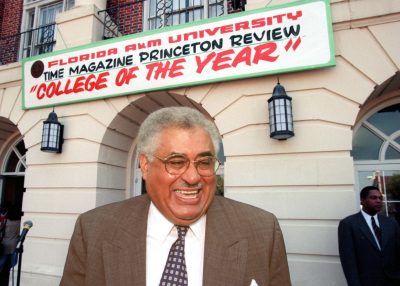 For me and the FAMU family, president Frederick Humphries was the epitome of excellence. By Ken Makin / The Undefeated
For me and the FAMU family, president Frederick Humphries was the epitome of excellence. By Ken Makin / The Undefeated
While Humphries will be remembered as the beloved former president of FAMU, he was so much more than an administrator — he was a master motivator and activist. He was a trailblazer in his own academic career. After he graduated from FAMU with a bachelor’s degree in physical chemistry in 1957, he became the first African American to earn master’s and doctoral degrees in physical chemistry from the University of Pittsburgh. He taught at the University of Minnesota and FAMU before he became the president of Tennessee State University in 1974. Just over a decade later, he began his tenure as president of FAMU in 1985, which lasted until 2001. Read more
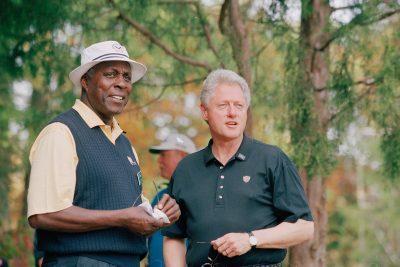 Inside the Bill Clinton–Vernon Jordan Bromance. By Gary Ginsberg / Vanity Fair
Inside the Bill Clinton–Vernon Jordan Bromance. By Gary Ginsberg / Vanity Fair
Bill Clinton famously cultivated a wide network of friends and political loyalists—a group that came to be known as F.O.B.s, Friends of Bill. But in his personal life, the 42nd president counted one man, first and foremost, as his best friend: the power broker and civil rights leader Vernon Jordan, who died in March at age 85. Most presidents have a bestie. In an excerpt from his new book First Friends, the author explores 42’s relationship with Vernon Jordan, the consummate power pal. Read more
Historical / Cultural
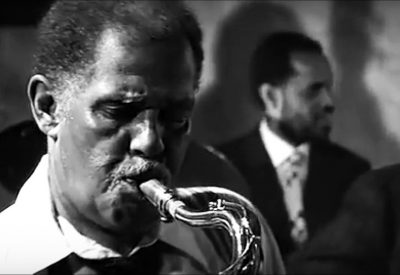 While Americans celebrated ‘Independence Day,’ Black musicians fled the U.S.—to find freedom abroad. By Denise Oliver Velez / Daily Kos
While Americans celebrated ‘Independence Day,’ Black musicians fled the U.S.—to find freedom abroad. By Denise Oliver Velez / Daily Kos
Conditions for Black people after emancipation continued to be dire, and as decades passed with multiple massacres and omnipresent Jim Crow oppression, some of our finest Black musicians, writers, and artists decamped to try to find freedom and appreciation for their artistry elsewhere. This is not to say that they thought they could escape racism; rather, these Black creatives hoped they could perhaps breathe in an atmosphere that was less stifling. And so, they journeyed to Paris, Amsterdam, Copenhagen, and other foreign capitals, creating a fellowship of Black expats. Some would stay, while others would eventually come home again. Today’s #BlackMusicSunday is my Fourth of July celebration of them all. One of the most well-known jazz expats was tenor saxophonist Dexter Gordon, (Shown) who also garnered attention as a screen actor. Samuel G. Freedman wrote a review for The New York Times of the 1986 film, ‘Round Midnight, starring Gordon. The film brought Gordon an Oscar nomination for Best Actor, and won a Grammy for the soundtrack. Read more
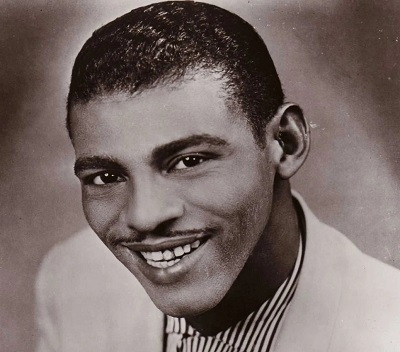 Little Walter’s Song That Changed Everything for the Blues. By Bobby Rush / The Daily Beast
Little Walter’s Song That Changed Everything for the Blues. By Bobby Rush / The Daily Beast
I didn’t shun Walter. Why? Because he was Little Walter. A living legend on the harp. And I was Bobby Rush, still trying to make a record and get people to take notice of me outside of Chicago. With the success of his hit record “Juke,” Walter had left Muddy’s band. Muddy said nothing to me personally about whether he was pissed at Walter, but all I know is that even after he left Muddy’s band, Walter still played on just about everything Mud recorded in the studio. Shown is Little Walter. Read more
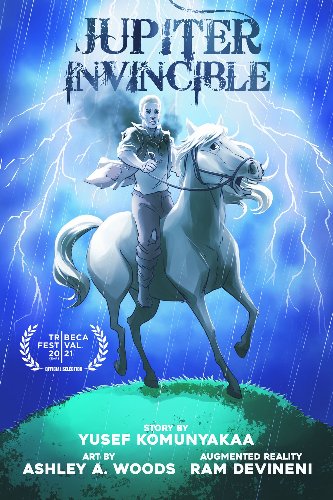 The newest comic book superhero: An enslaved man turned immortal. By Theresa Vargas / Wash Post
The newest comic book superhero: An enslaved man turned immortal. By Theresa Vargas / Wash Post
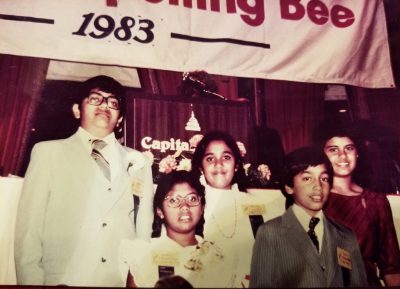 How Indian Americans Came to Love the Spelling Bee. By Anna P. Kambhampaty / NYT
How Indian Americans Came to Love the Spelling Bee. By Anna P. Kambhampaty / NYT
A 2020 documentary, “Spelling the Dream,” followed four Indian American children preparing for 2017’s bee season and showcased just how much it means to South Asian American families. “It is definitely a source of pride from an educational standpoint,” said Shalini Shankar, an anthropologist and the author of “Beeline: What Spelling Bees Reveal about Generation Z’s New Path to Success.” But it is also something more: The bee has become an occasion for unity within the South Asian American immigrant community, and it all goes back to a historic victory more than three decades ago. In 1985, Balu Natarajan (shown) became the first child of immigrants to win Scripps, prompting an outpouring of support from people of South Asian descent. “Many people who I’d never even met felt a connection to it,” said Mr. Natarajan, 49. “I had no idea how much one could be embraced by a community.” Read more
 ‘In The Heights’: Can one film bring joy — and spark a Latino conversation on race? By Nicole Acevedo / NBC News
‘In The Heights’: Can one film bring joy — and spark a Latino conversation on race? By Nicole Acevedo / NBC News
“In The Heights” tells the story of a multigenerational community of Latino residents and business owners grappling with the realities of rising rents, college costs, prejudice and the pull of their home countries. But they also know what they want to achieve and how to get it done, with an ending that is about progress and finding one’s place — even in a city as challenging as New York. But the movie has also generated debate following criticism that it lacked diverse Black Latino main characters. Critics pointed out that a film centered around a predominantly Dominican neighborhood — the Dominican Republic is a country with strong African roots — should have included more Afro Latinos in leading roles. Though one of the movie’s main characters is a Black man, he’s not Latino. Read more
Sports
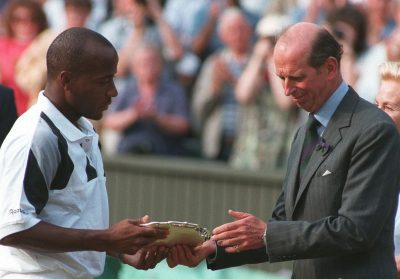 Wimbledon’s last Black men’s finalist was in 1996. What will it take for another? By Liz Clarke / Wash Post
Wimbledon’s last Black men’s finalist was in 1996. What will it take for another? By Liz Clarke / Wash Post
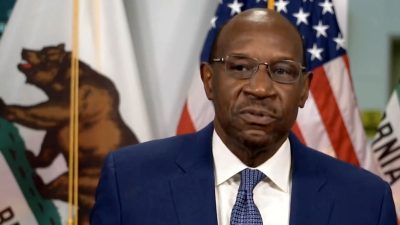 California Supreme Court’s 1st gay justice left the NFL to pursue a law career. By Julie Compton / NBC News
California Supreme Court’s 1st gay justice left the NFL to pursue a law career. By Julie Compton / NBC News
Upon being unanimously confirmed as a California Supreme Court justice in November, Martin J. Jenkins made history as the first openly gay justice and third Black man to serve on the state’s highest court. In an interview with the LGBTQ magazine Advocate, Jenkins called the distinction “an interesting notion.” As a young man, Jenkins briefly played in the NFL after signing with the Seattle Seahawks. But after realizing “his true calling was becoming a lawyer,” he enrolled in the University of San Francisco School of Law and obtained his degree in 1980, according to the statement. Jenkins later became a civil rights attorney with the Civil Rights Division of the Department of Justice where he “pursued cases involving police misconduct and cross burnings,” and also worked to “promote gender equality through cases on pregnancy-related leave and sex discrimination.” Read more
 Why We Hold Olympic Athletes to Such Ridiculous and Cruel Standards. By Lindsay Crouse / NYT
Why We Hold Olympic Athletes to Such Ridiculous and Cruel Standards. By Lindsay Crouse / NYT
Sha’Carri Richardson, the 21-year-old American sprinter whose breakout victory in the 100-meter dash at the U.S. track and field Olympic trials in Oregon last month transformed her into an overnight star, posted a plaintive message on Twitter on Thursday afternoon: “I am human.” What she was referring to became clear when news broke that the United States Anti-Doping Agency was suspending her for a month, after she tested positive for marijuana. Ms. Richardson says she used the drug after a reporter told her about the death of her biological mother. (Recreational marijuana is legal in the state of Oregon, where she was at the time.) Now, she’s out of the 100-meter dash at the Tokyo Olympics. Read more
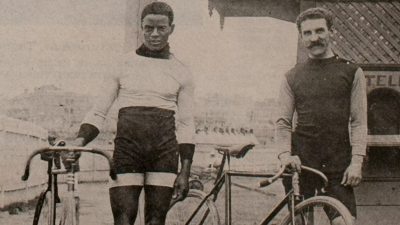 Racism broke him, but Black cycling superstar Major Taylor is getting his moment. By Gregg Doyel / USA Today
Racism broke him, but Black cycling superstar Major Taylor is getting his moment. By Gregg Doyel / USA Today
Once upon a time, before he died penniless in a Chicago hospital charity ward, before he was given a pauper’s burial, Major Taylor was the fastest man alive. That’s what people called him, because it was true. He was from Indianapolis and was world famous. This was the turn of the century, right around 1900, and more things happened. History happened, and no, history isn’t always beautiful. But there he is now, towering over Meridian Street, his mural being painted 60 feet above downtown Indianapolis. It isn’t finished yet, but already there is so much power here as Major Taylor explodes off the building, leaning over the handlebars, his red racing jersey leaving behind a crimson trail. This is Major Taylor’s moment. Considering he was once the fastest man alive, it’s taken him an awfully long time to get here. Read more
 What the NCAA Owes to the Athletes It Punished. By Jemele Hill / The Atlantic
What the NCAA Owes to the Athletes It Punished. By Jemele Hill / The Atlantic
College sports changed forever this week. Giving in to intense pressure from state lawmakers, the NCAA freed student athletes to profit off of their own name, image, and likeness for the first time. The next step in the NCAA’s forced evolution should be to restore the reputation of athletes whom the organization has demonized for capitalizing on their own fame. Like the people with marijuana convictions who want their records expunged as states legalize the drug, athletes whom NCAA officials punished under the old, discredited rules deserve clemency now. “I never cheated this game,” Reggie Bush, the former University of Southern California star running back, wrote on Twitter Thursday. “That was what they wanted you to believe about me.” Read more
Site Information
Visit our home page for more articles, book/podcast and video favorites. And at the top of this page register your email to receive notification of new editions of Race Inquiry Digest. Click here for earlier Digests.
About Race Inquiry and Race Inquiry Digest. The Digest is published on Mondays and Thursdays.
Use the buttons below to share the Digest in an email, or post to your Facebook, Linkedin or Twitter accounts.